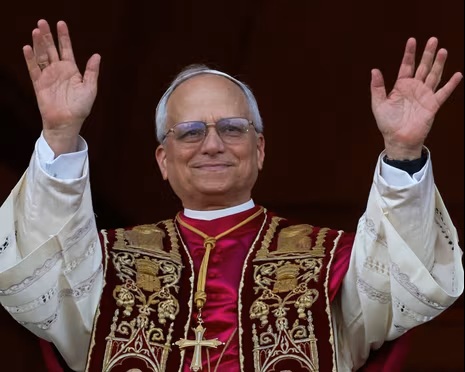Indissolubility is Essential to Christian Marriage
Almost six years ago, when my fiancé (now husband) and I sat down to answer a questionnaire for our marriage prep course, it became clear that his view of the sacrament we were entering was deeper than mine. I was aware that when couples married in the Catholic Church and then divorced civilly, they were still considered husband and wife in the eyes of the church. After all, the Catechism of the Catholic Church clearly states, “a ratified and consummated marriage cannot be dissolved by any human power or for any reason other than death” (CCC 2382).
However, I naïvely assumed that an annulment was basically like a divorce for Catholics. I figured if when things went south, there was inevitably some reason to declare that the couple’s bond “fell short of at least one of the essential elements required for a binding union,” as the U.S. Conference of Catholic Bishops explains it.
So when the questionnaire inquired whether I believed adultery to be grounds for an annulment, I answered yes without a second thought. How could I be expected to stay with this man if he were to have an affair?
To my surprise, when it came time to review our individual answers, my husband revealed that his response to this question had been a merciful no. What?
“You would stay with me if I cheated on you?” I asked incredulously.
“It would depend on the circumstances,” he admitted. “But an affair in and of itself would not make me walk away from our marriage.” I sensed his tenacious commitment to me, the commitment that rightly reflects that which Christ has to his people. My husband didn’t see annulments as a safety net. He didn’t see a safety net, period. He simply saw the permanence of marriage. It was the first of many moments that would etch itself into my memory, echoing that this one-flesh union we share is truly till death.
Neither of us has ever been unfaithful in our marriage. Nonetheless, it wasn’t long before we began to taste the extraordinary amounts of virtue such as mercy, forgiveness, generosity and humility that are vital in keeping the flame of a marriage ablaze. Amid our most turbulent arguments, especially those which stretch us beyond where we thought our hearts could extend, I realize how much sense it makes for couples who do not marry in the Catholic Church and do not possess the permanence mindset of marriage to throw in the towel.
Every single marriage will travel over glorious, euphoric hills and through gloomy valleys. In our case — which is likely close to the norm, involving no extreme circumstances like abuse — there are three options when we enter those valleys:
First, we can call it quits and declare our marriage too burdensome to maintain, rejecting the vows we once took before God and our loved ones.
Second, we enslave ourselves to the abundant distractions of everyday life, such as kids and work, never addressing our marital issues, allowing our relationship to become infested by seething resentments, living more like bitter roommates than lovers.
Or third, we throw ourselves full force into resolving each of the issues we come upon despite the vulnerability and discomfort that will inevitably ensue.
Of those options, the third is the only one that leads us to both a legitimate and flourishing marriage.
So in order to understand Catholicism’s stance on divorce and the principle behind annulments, we need to start with the understanding that when it comes to doctrine, the Catholic Church does not contradict herself. She can’t, because in declaring truth, there can exist no contradictions. So when the Church declares two people to be man and wife until death, she’s not going to turn around later and say, “Yikes. Things got pretty ugly between you two, huh? Let’s go ahead and dissolve this marriage. Better luck with spouse number two.”
No. That would be a direct contradiction of what the priest declared on their wedding day and if we can’t trust Church doctrine to be consistent, Catholicism crumbles. Consequently, an annulment is literally the declaration that due to various circumstances, a valid marriage between two people never actually existed in the first place. To say “this marriage was not canonically valid from the beginning” is drastically different from saying, “this marriage is over.”
The beautiful indestructability of the one-flesh union is ultimately a glorious gift, not a prison. It’s meant to mirror the unbreakable commitment of God to his people and to show us just how much abundant giving and receiving we’re capable of — but only if we’re willing to plow through those dark valleys without calling it quits.



